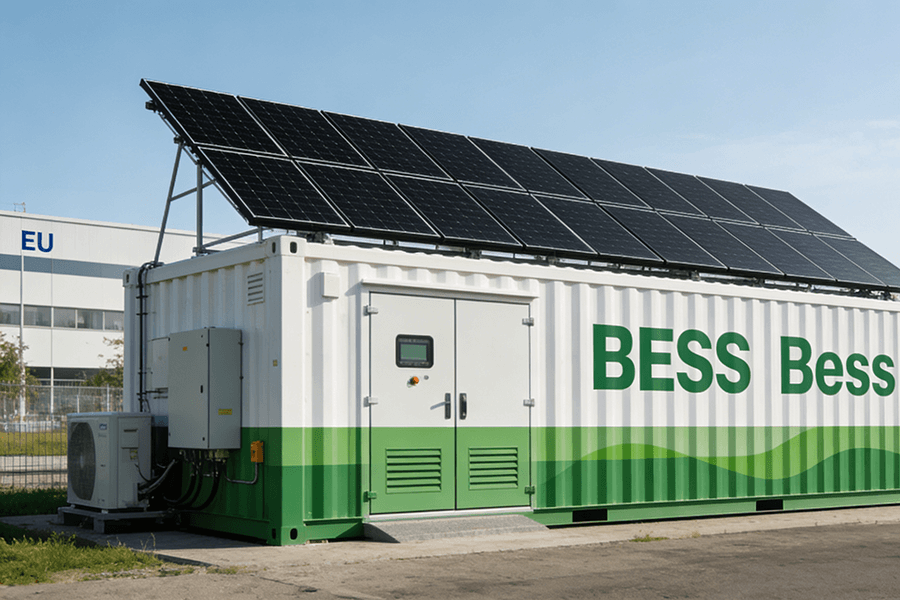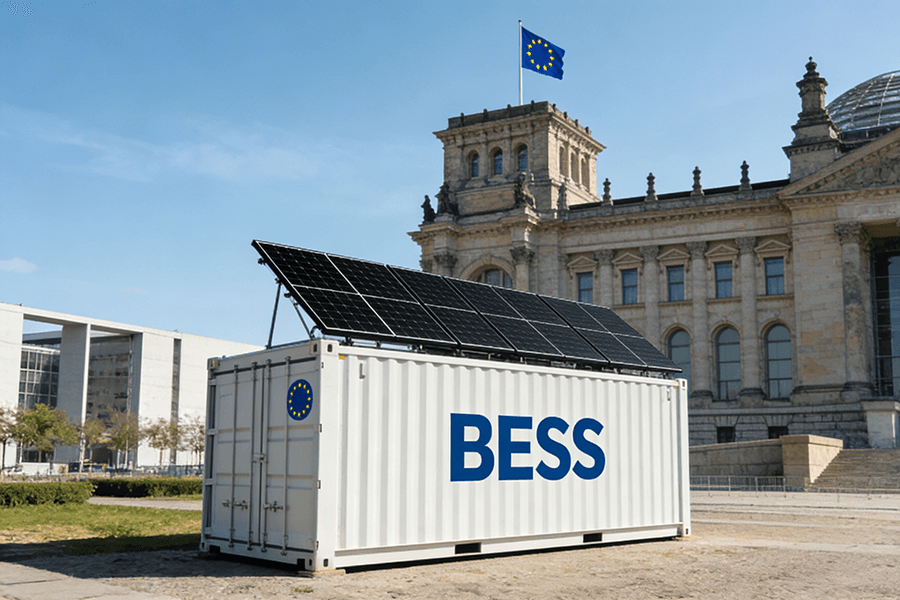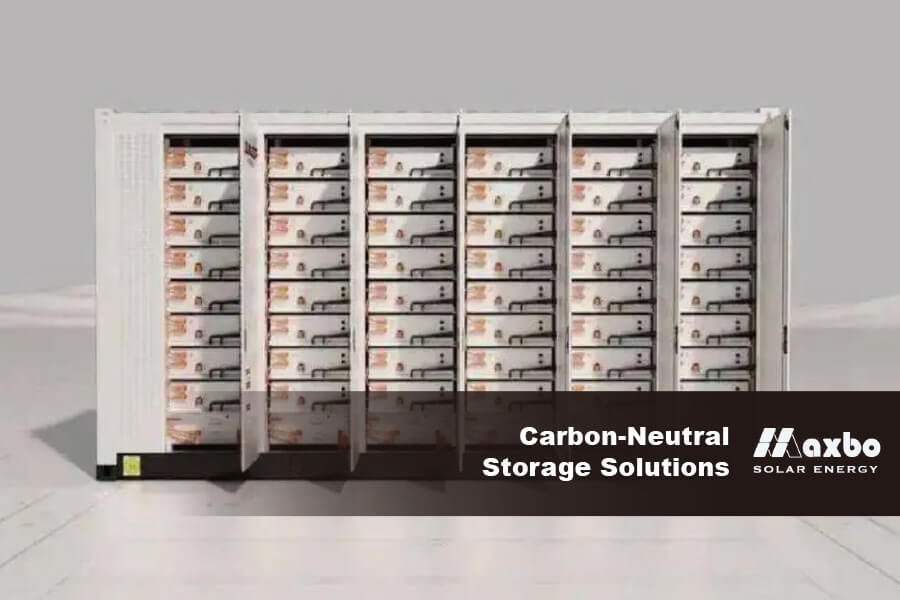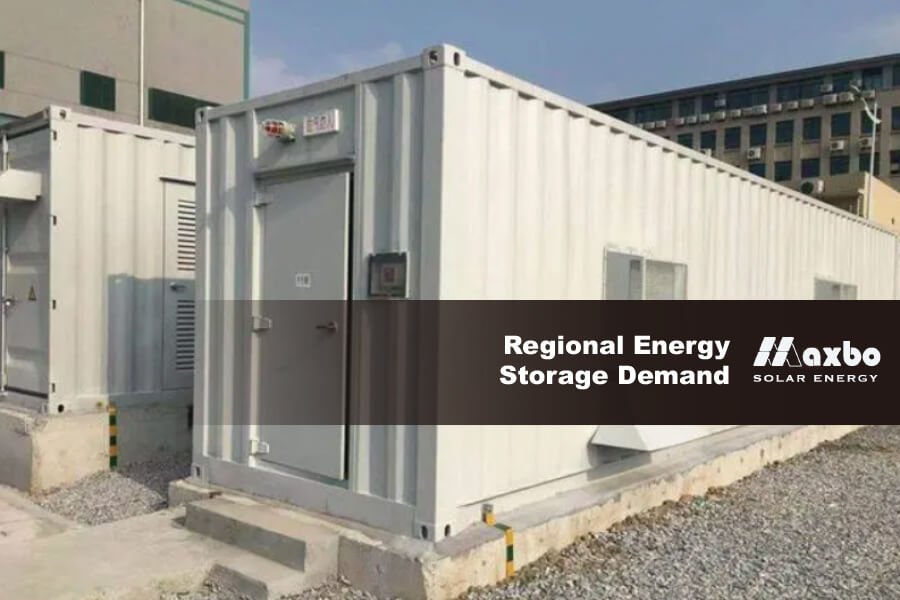The European Union (EU) is spearheading the global shift to renewable energy, and at the heart of this transformation lies energy storage. However, achieving energy sustainability and efficiency hinges on clear and actionable energy storage regulations EU governments have implemented to drive the sector forward. For businesses and individuals in Europe, understanding these regulations is critical for leveraging storage systems effectively.
At Maxbo, as a one-stop solar and energy storage solutions provider, we not only offer cutting-edge products but also guide our customers through the complexities of EU energy storage policies. Let’s delve into how these regulations shape the future and how Maxbo solutions align with them to maximize your energy investments.
Table of Contents
ToggleThe Significance of Energy Storage Regulations in the EU
Driving Renewable Energy Integration
Energy storage is the backbone of renewable energy adoption. With solar and wind providing intermittent power, storage solutions ensure energy stability and reliability. EU regulations emphasize the importance of energy storage for achieving climate neutrality by 2050 under the European Green Deal.
Empowering European Consumers
EU energy storage regulations aim to give individuals and businesses more control over their energy use. By supporting decentralized energy systems, the EU allows users to store, trade, and utilize renewable energy more effectively.
Key Energy Storage Regulations EU Stakeholders Should Know
Clean Energy Package
The Clean Energy Package introduced transformative changes for energy storage:
- Ownership Rights: Consumers can own and operate storage systems independently of traditional utilities.
- Energy Markets Access: Storage owners can participate in electricity markets, selling stored energy during peak demand.
- Grid Balancing: Storage systems are now eligible for revenue through grid balancing services.
Renewable Energy Directive (RED II)
The Renewable Energy Directive (RED II) promotes the integration of renewables with energy storage, highlighting:
- Grid-Connected Storage: Encouraging the development of large-scale grid storage systems.
- Hybrid Systems: Supporting solar-plus-storage solutions for residential and commercial applications.
- Decentralized Models: Encouraging energy storage at the community and individual levels.
Tax and Financial Incentives
EU member states offer subsidies, tax reductions, and grants for energy storage installations. For example:
- Germany provides incentives under the KfW Development Bank for solar storage systems.
- France offers tax credits for residential storage paired with solar systems.
- Italy’s “Superbonus 110%” allows deductions for energy-efficient upgrades, including storage.
How EU Regulations Shape Energy Storage Markets
Industrial Applications
Industrial facilities benefit from regulations promoting large-scale storage deployment. These facilities can reduce energy costs by storing energy during low-demand hours and using it during peak times.
Residential Growth
Residential energy storage systems are rapidly expanding due to simplified permitting processes and financial incentives introduced by the EU. The shift empowers homeowners to store solar energy, reduce grid dependency, and save on energy bills.
Commercial Expansion
Retail, manufacturing, and logistics sectors are embracing energy storage regulations that enable cost savings, grid independence, and enhanced operational resilience.
How Maxbo Supports Customers Navigating Energy Storage Regulations EU
At Maxbo, we ensure that every product we offer is fully compliant with energy storage regulations EU requirements. We combine our expertise in manufacturing and installation with our knowledge of European policy to help customers make the most of their energy investments.
Our Solutions Tailored to EU Compliance
- Modular Containerized Storage Units:
- Compliant with grid integration standards.
- Designed for scalability to meet evolving regulations.
- Explore our products at Maxbo Solar.
- Advanced Monitoring Systems:
- Smart software ensures regulatory compliance by providing real-time insights into energy usage and performance.
- Full-Service Support:
- We assist with permitting, subsidies, and incentive applications in compliance with EU frameworks.
Challenges Addressed by Energy Storage Regulations
Intermittency of Renewables
EU policies encourage the deployment of storage systems to stabilize the grid and offset the intermittency of solar and wind power.
Market Barriers
By standardizing regulations, the EU reduces market fragmentation, making it easier for companies like Maxbo to deliver solutions across multiple member states.
High Initial Costs
Subsidies and tax incentives lower the barriers to entry, ensuring affordable access to energy storage technologies for both businesses and households.
Real-World Data: How Regulations Impact Storage Costs
Sample Costs for Energy Storage in the EU
| Application | System Type | Capacity | Initial Cost | Subsidy/Incentive | Net Cost |
|---|---|---|---|---|---|
| Residential Solar Storage | Lithium-Ion Battery | 10 kWh | €8,000 | €2,500 (Germany) | €5,500 |
| Commercial Storage Unit | Containerized Solution | 100 kWh | €70,000 | €20,000 (France) | €50,000 |
| Grid-Scale Storage | Modular Units | 1 MWh | €600,000 | €150,000 (Italy) | €450,000 |
Revenue Potential from Regulations
- Energy Trading: Storage owners can sell excess energy on the market.
- Capacity Payments: Participate in capacity markets for grid stabilization.
- Demand Response: Revenue from reducing grid demand during peak periods.
Future Trends in Energy Storage Regulations EU
Increased Decentralization
With the rise of prosumers (producer-consumers), regulations will increasingly focus on decentralized energy systems. This creates opportunities for smaller-scale energy storage deployments.
Enhanced Digital Integration
EU policies are moving toward mandating smart grid technologies. Energy storage systems must integrate seamlessly with these grids, making advanced monitoring and automation crucial.
Cross-Border Collaboration
The EU aims to harmonize energy storage regulations across member states, facilitating cross-border energy sharing and grid stability.
Conclusion: Embracing Energy Storage Regulations EU with Maxbo
The evolving landscape of energy storage regulations EU offers immense opportunities for businesses and households to benefit from energy storage solutions. At Maxbo, we are committed to empowering our customers with fully compliant, efficient, and cost-effective systems tailored to Europe’s needs.
Whether you’re looking to install residential solar storage or scale up industrial operations, our team is here to help. Explore our energy storage offerings and learn how we align with EU policies to deliver the best results for you. Visit Maxbo Solar to start your journey toward sustainable energy today.
References
- European Commission, “Energy Storage and Renewable Integration Policies” – Link
- BloombergNEF, “Energy Storage Market Insights” – Link
- Maxbo Solar Official Website – Maxbo Solar
Related Solutions
Related Blogs
EU Green Building BESS container: Mandatory for 2030 New Constructions
行政2025-12-08T17:00:00+08:00December 8th, 2025|Categories: Design, News|
EU Historic Building BESS Container: Save Heritage, Slash Carbon—No Drills Required
行政2025-12-08T16:59:09+08:00December 8th, 2025|Categories: Design, News|
Let’s Make Things Happen
Add notice about your Privacy Policy here.
Let’s Make Things Happen
”The Maxbo team of sales consultants will continue to enrich our own expertise and experience to empower the development of sustainable energy with rigor.“
Maxbo CEO
You will need to provide: 1. the amount of electricity used. 2. the type and power of the load. 3. the electricity consumption habits (daytime/nighttime consumption). 4. the need to store electricity. 5. the need to feed electricity to the mains. 6. drawings or address of the installation site. 7. other special requirements
We can provide you with a quotation, a specification for all products, a circuit connection diagram and a diagram of the installation and placement of the PV panels. Any other requirements and adjustments needed can be discussed with our team.
We can meet the needs of most scenarios, whether your application is for domestic, commercial and industrial use, in remote areas, or for grid-level energy storage, we have experienced colleagues to design and deliver the right solution.
Add notice about your Privacy Policy here.
How much solar power do I need?
Most homes need 5–12kW, depending on your energy use and location.
Off-grid vs. grid-tied — what’s the difference?
Off-grid works without the utility grid; grid-tied lets you sell extra power back.
Do I need permits?
Usually yes — check local rules or ask us for guidance.
How long does a battery last?
Depends on size and load. A 5kWh battery can power a fridge for about 40 hours.
Can I upgrade my system later?
Yes, our systems are modular and easy to expand.
Does Maxbo offer installation?
We ship globally and connect customers with trusted local installers.










